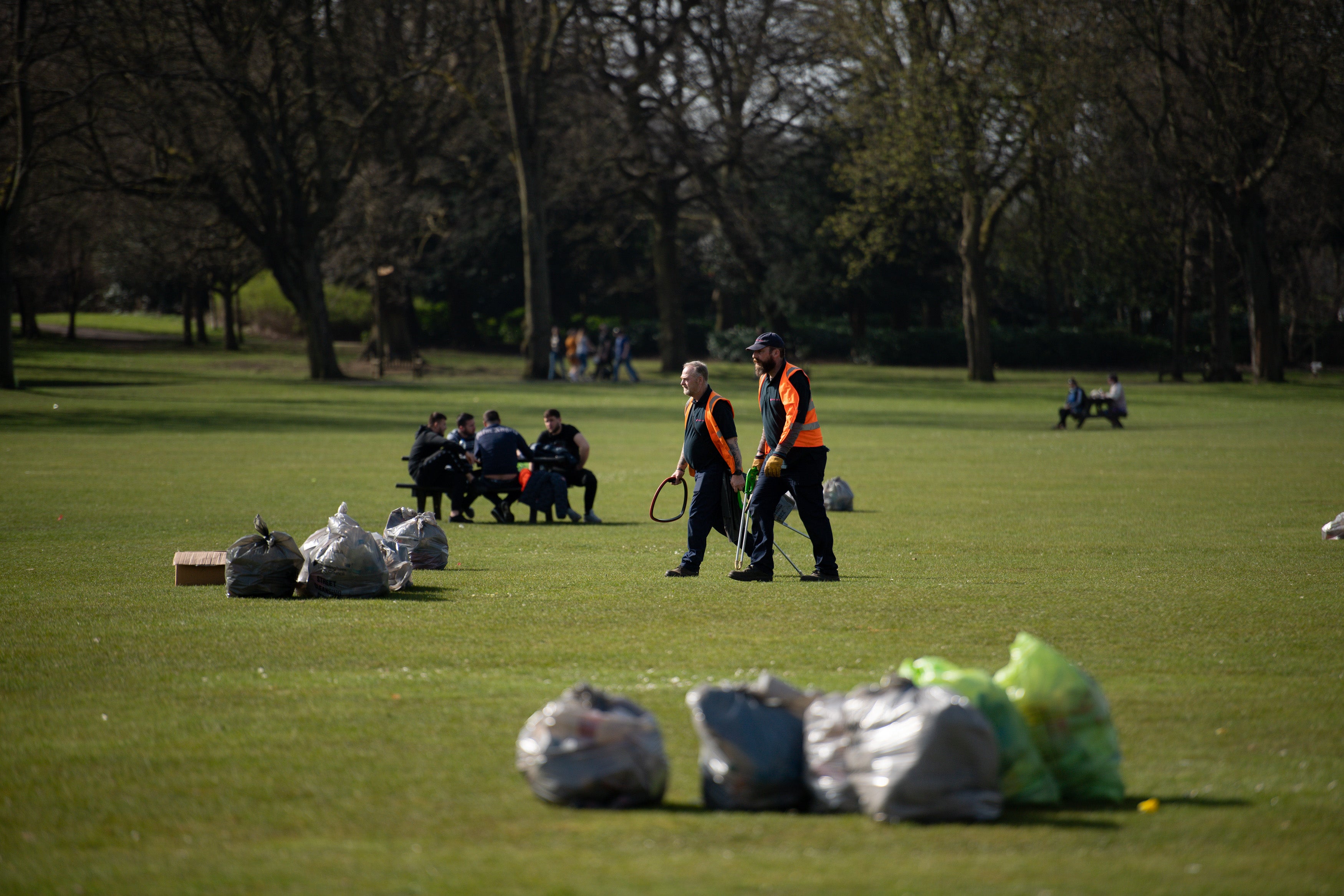Councils could be forced to cut back on waste collection and green spaces as funding shortfall reaches £550m
Eighty-four per cent of councils surveyed said they would raise council tax by maximum amount next year
Councils in England have warned that they could be forced to make cuts to local services, such as waste collection and park maintenance, in the next two years to cope with dwindling funds.
The District Councils Network, which represents 168 local authorities, has predicted funding shortfalls of over half a billion pounds in both of the next two financial years.
District councils are responsible for many key council services, such as housing, parks and waste collection. But with government grants lagging behind inflation, local leaders have said that jobs will have to be cut.
Research from the network predicts a total funding shortfall of £550m in 2023/4 and £610m in 2024/5.
Of 79 councils surveyed, 84 per cent said they are likely to increase council tax next year by the maximum amount permitted. Half of councils – 52 per cent – said they did not expect to be able to balance their budgets in 2024/5 without drawing on reserves.

Eighty-three per cent of councils said that, if they can’t secure extra funding for the next financial year, they will have to cut down on cultural services. Seventy-seven per cent could cut back on community support, and 74 per cent on parks and green spaces.
Nearly three-quarters said that they would strip back budgets for leisure in their communities, and two-thirds would reduce wider environmental services.
Forty-three per cent said waste collection services would have to be reduced to cope with funding pressures.
Council leaders said that the costs of dealing with increased homelessness were eating into their diminishing budgets. Spending on temporary accommodation by council homelessness services in England rose to more than £1.7bn in the year to March, latest figures show.
Costs for leasing bed and breakfasts as emergency accommodation for families were up a third on the year before.
Councillor Elizabeth Dennis, from the District Councils Network, said any further scaling back of services would be “disastrous”, adding that “the most vulnerable people will be hit hardest”.
She added: “Unless we receive a realistic financial settlement and the financial freedoms to ensure we can raise extra money to undertake our work, councils are left only with an impossible choice of which services to cut back.
“We already anticipate councils will make savings amounting to nine per cent of their budgets, where possible through efficiencies, but increasing savings are only achievable through workforce cuts and service reductions.”
A Department for Levelling Up, Housing and Communities spokesperson said: “We have made £5.1bn of extra funding available to local authorities through the Local Government Finance Settlement, making almost £60bn available for the sector – up 9.4 per cent on cash terms on 2022/23. We continue to monitor pressures on all councils and we stand ready to talk to any council that is concerned about its financial position.
“Councils are ultimately responsible for the management of their own finances, but the government has been clear that they should not take excessive risk with taxpayers’ money.”
Join our commenting forum
Join thought-provoking conversations, follow other Independent readers and see their replies
Comments
Bookmark popover
Removed from bookmarks